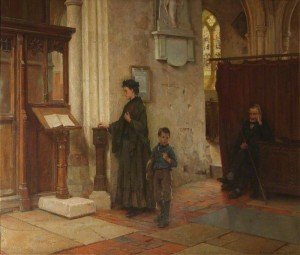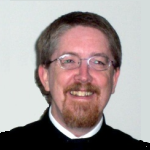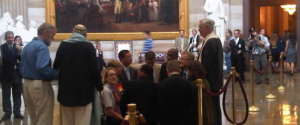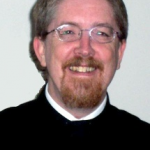Deprecated: trim(): Passing null to parameter #1 ($string) of type string is deprecated in
/home/aoiusa/public_html/wp-content/plugins/sexybookmarks/public.php on line
388
Deprecated: trim(): Passing null to parameter #1 ($string) of type string is deprecated in
/home/aoiusa/public_html/wp-content/plugins/sexybookmarks/public.php on line
394
Deprecated: trim(): Passing null to parameter #1 ($string) of type string is deprecated in
/home/aoiusa/public_html/wp-content/plugins/sexybookmarks/public.php on line
400
 “The religious roots of the market economy and of democratic capitalism…were produced by a culture saturated in the values of the Judaeo-Christian heritage, and market economics was originally intended to advance those values.”
“The religious roots of the market economy and of democratic capitalism…were produced by a culture saturated in the values of the Judaeo-Christian heritage, and market economics was originally intended to advance those values.”
“When Europe recovers its soul, it will recover its wealth-creating energies. But first it must remember: humanity was not created to serve markets. Markets were created to serve humankind.”
Source: Office of the Chief Rabbi |Chief Rabbi Lord Sacks
Delivered at The Pontifical Gregorian University on 12th December 2011.
As the political leaders of Europe come together to try to save the euro, and with it the very project of European Union, I believe the time has come for religious leaders to do likewise, and I want to explain why.
What I hope to show in this lecture, is first, the religious roots of the market economy and of democratic capitalism. They were produced by a culture saturated in the values of the Judaeo-Christian heritage, and market economics was originally intended to advance those values.
Second, the market never reaches stable equilibrium. Instead the market itself tends to undermine the very values that gave rise to it in the first place through the process of “creative destruction.”
Third, the future health of Europe, politically, economically and culturally, has a spiritual dimension. Lose that and we will lose much else besides. To paraphrase a famous Christian text: what will it profit Europe if it gains the whole world yet loses its soul? Europe is in danger of losing its soul.
I want to preface my remarks by thanking His Eminence Cardinal Koch for not only inviting me to deliver this lecture, but being so graciously helpful throughout my trip and private audience with His Holiness.
I want to thank Father Francois-Xavier Dumortier, Rector of the Gregorian University for his kind words of introduction as well as Father Philipp Renczes of the Cardinal Bea Centre for Judaic Studies and Dr. Ed Kessler of the Woolf Institute in Cambridge for hosting this lecture and for all their support in arranging this visit. These two institutions represent the best of European thought, wisdom and spirituality. Through collaborative work, my hope is that these two institutions will help build a European platform to showcase and apply the resources that this continent with its rich heritage has to offer to build a better future for the world.
I am also honoured to see a number of Ambassadors and many other distinguished guests join us here this evening; I thank you all very much for coming.
I want to begin by saying a word about the relationship between the Vatican and the Jewish people.
The history of the relationship between the Catholic Church and the Jews was not always a happy or an easy one. Too often it was written in tears. Yet something extraordinary happened just over half a century ago, when on 13 June 1960 the French Jewish historian Jules Isaac had an audience with Pope John XXIII and presented him with a dossier of materials he had been gathering on the history of Christian antisemitism. That set in motion the long journey to Vatican II and Nostra Aetate, as a result of which, today, Jews and Catholics meet not as enemies, nor as strangers, but as cherished and respected friends.
That is one of the most dramatic transformations in the religious history of humankind and lit a beacon of hope, not just for us but for the world. It was a victory for the God of love and forgiveness, who created us in love and forgiveness, asking us to love and forgive others.
I hope that this visit, this morning’s audience with His Holiness, and this lecture might in some small way mark the beginning of a new chapter in our relationship. For half a century Jews and Christians have focused on the way of dialogue that I call face-to-face. The time has come to move on to a new phase, the way of partnership that I call side-by-side.
For the task ahead of us is not between Jews and Catholics, or even Jews and Christians in general, but between Jews and Christians on the one hand, and the increasingly, even aggressively secularising forces at work in Europe today on the other, challenging and even ridiculing our faith.
If Europe loses the Judaeo-Christian heritage that gave it its historic identity and its greatest achievements in literature, art, music, education, politics, and as we will see, economics, it will lose its identity and its greatness, not immediately, but before this century reaches its end.
When a civilisation loses its faith, it loses its future. When it recovers its faith, it recovers its future. For the sake of our children, and their children not yet born, we – Jews and Christians, side-by-side – must renew our faith and its prophetic voice. We must help Europe recover its soul.
***
That is by way of introduction. Let me begin with a striking passage from Niall Ferguson’s recent book, Civilisation. In it he tells of how the Chinese Academy of Social Sciences was given the task of discovering how the West, having lagged behind China for centuries, eventually overtook it and established itself in a position of world pre-eminence. At first, said the scholar, we thought it was because you had more powerful guns than we had. Then we concluded it was because you had the best political system. Then we realised it was your economic system. “But in the past 20 years, we have realised that the heart of your culture is your religion: Christianity. That is why the West has been so powerful. The Christian moral foundation of social and cultural life was what made possible the emergence of capitalism and then the successful transition to democratic politics. We don’t have any doubt about this.”
The Chinese scholar was right. The same line of reasoning was followed by the Harvard economic historian, David Landes, in his magisterial The Wealth and Poverty of Nations. He too pointed out that China was technologically far in advance of the West until the 15th century. The Chinese had invented the wheelbarrow, the compass, paper, printing, gunpowder, porcelain, spinning machines for weaving textiles and blast furnaces for producing iron. Yet they never developed a market economy, the rise of science, an industrial revolution or sustained economic growth. Landes too concludes that it was the Judeo-Christian heritage that the West had and China lacked.
Admittedly the phrase “Judeo-Christian tradition” is a recent coinage and one that elides significant differences between the two religions and the various strands within each. Different scholars have taken diverse tracks in tracing the economic history of the West. Max Weber famously spoke about The Protestant Ethic and the Spirit of Capitalism, with special emphasis on Calvinism. Michael Novak has written eloquently about the Catholic ethic. Rodney Stark has pointed out how the financial instruments that made capitalism possible were developed in the fourteenth century banks in pre-Reformation Florence, Pisa, Genoa and Venice.
Those who emphasised the Jewish contribution, from Karl Marx to Werner Sombart, tended to do so in a spirit of criticism. Nonetheless it cannot be pure coincidence that Jews, numbering less than a fifth of a per cent of the population of the world, have won more than 30 per cent of Nobel Prizes in economics and include such contributions as John von Neumann’s invention of Games Theory, Milton Friedman’s monetary economics, Joseph Stiglitz’ development economics, and Daniel Kahneman and Amos Tversky’s behavioural economics and the less-than-fully-rational way in which we make market choices. The biblical Joseph may have been the world’s first economist, having discovered the theory of trade cycles – seven years of plenty followed by seven lean years. The financial state of Europe would be better today if people knew their Bible.
There is, though, enough common ground to speak, at least here, of shared values. First there is the deep biblical respect for the dignity of the human individual, regardless of colour, creed or class, created in the image and likeness of God. The market gives more freedom and dignity to human choice than any other economic system.
Second is the biblical respect for property rights, as against the idea prevalent in the ancient world that rulers were entitled to treat property of the tribe or nation as their own. By contrast, when Moses finds his leadership challenged by the Israelites during the Korach rebellion, he says about his relation to the people, “I have not taken one ass from them nor have I wronged any one of them.” The great assault of slavery against human dignity is that it deprives me of the ownership of the wealth I create.
Then there is the biblical respect for labour. God tells Noah that he will be saved from the flood, but it is Noah who has to build the ark. The verse “Six days shall you labour and do all your work, but the seventh day is a Sabbath to the Lord your God” means that we serve God through work as well as rest.
Job creation, in Judaism, is the highest form of charity because it gives people the dignity of not depending on charity. “Flay carcasses in the market-place,” said the third century teacher Rav, “and do not say: I am a priest and a great man and it is beneath my dignity”.
Equally important is Judaism’s positive attitude to the creation of wealth. The world is God’s creation; therefore it is good, and prosperity is a sign of God’s blessing. Asceticism and self-denial have little place in Jewish spirituality. By our labour and inventiveness we become, in the rabbinic phrase, “partners with God in the work of creation”.
Above all, from a Jewish perspective, the most important thing about the market economy is that it allows us to alleviate poverty. Judaism refused to romanticize poverty. It is not, in Judaism, a blessed condition. It is, the rabbis said, “a kind of death” and “worse than fifty plagues”. At the other end of the spectrum they believed that with wealth comes responsibility. Richesse oblige. Successful businessmen (and women) were expected to set an example of philanthropy and to take on positions of communal leadership. Conspicuous consumption was frowned upon, and periodically banned through local “sumptuary laws”. Wealth is a Divine blessing, and therefore it carries with it an obligation to use it for the benefit of the community as a whole.
The rabbis favoured markets and competition because they generate wealth, lower prices, increase choice, reduced absolute levels of poverty, and extend humanity’s control over the environment, narrowing the extent to which we are the passive victims of circumstance and fate. Competition releases energy and creativity and serves the general good.
***
So the market economy and modern capitalism emerged in Judeo-Christian Europe and not in other cultures like China that were more advanced in other ways. The religious ethic was one of the driving forces of this once new form of wealth creation.
Equally however, this same ethic taught the limits of capitalism. It might be the best means we know of for generating wealth, but it is not a perfect system for distributing wealth. Some gain far more than others, and with wealth comes power over others. Unequal distribution means that some are condemned to poverty. And poverty is not just a physical disaster for those without the means to sustain themselves. It is a psychological disaster. Poverty humiliates. It can also force the poor into a cycle of dependence. They may be forced to borrow. They might in biblical times be forced to sell themselves into slavery.
The Hebrew Bible refuses to see as an inexorable law of nature, a Darwinian struggle in which, in Thucydides’ words, “The strong do what they can and the weak suffer what they must.” That is the ethics of ancient Greece not the ethics of ancient Israel.
And so we find in the bible an entire structure of welfare legislation: the corner of the field, the forgotten sheaves, and other parts of the harvest, left for the poor, together with the tithe on certain years; the sabbatical year in which all produce is available for everyone, debts cancelled and slaves set free; and the jubilee year in which ancestral land returned to its original owners.
This is a highly sophisticated system, aimed at two things: first that the poor should have means of a livelihood, and second that there should be, every seven and fifty years, periodic redistributions to correct the inequalities of the market and establish a level playing field. And what was done in biblical times in a largely agricultural economy was done in post-biblical times through a vast extension of the tzedakah, the word we usually translate as charity, though it also means justice.
Every Jewish community in the Middle Ages had an elaborate system of tzedakah that amounted to nothing less than a mini-welfare state. There was a chevra, a fellowship, gathering and distributing funds for every conceivable purpose: for poor brides, for the sick, for education, for burial, so that no one was deprived of the means of a dignified existence. What made this structure remarkable, indeed unique, was not only that it was the first of its kind, the precursor of the modern welfare state, but also that it was entirely voluntary, the collective decision of a community with no governmental power and often no legal rights.
In a recent and impressive study Harvard political philosopher Eric Nelson has shown that it was the Hebrew Bible, as read by the Christian Hebraists in the sixteenth and seventeenth century, that was the source of the idea that today we take for granted that it is part of the business of a society to engage in the redistribution of wealth through taxation to ensure the welfare of the poor. Such an idea could not be found in the Greek or Roman classics that inspired the Renaissance. The concept of welfare – distributive justice as opposed to legal or retributive justice – is Judaic in origin and flows ultimately from the same generative principle as the free market itself, the idea that every individual has dignity in the image of God and that it is our task to develop social structures that honour and enhance that dignity.
So not only is the market the outcome of a Judeo-Christian ethic. So too is a keen sense of the limits of the market and the need to supplement it with a system of welfare itself funded by the market.
***
However as the critics of capitalism pointed out, the market does not create a stable equilibrium. It engages in creative destruction, or as Daniel Bell put it, capitalism contains cultural contradictions. It tends to erode the moral foundations on which it was built. Specifically, as is manifest clear in contemporary Europe, it erodes the Judeo- Christian ethic that gave birth to it in the first place.
Instead of seeing the system as Adam Smith did, as a means of directing self- interest to the common good, it can become a means of empowering self-interest to the detriment of the common good. Instead of the market being framed by moral principles, it comes to substitute for moral principle. If you can buy it, negotiate it, earn it and afford it, then you are entitled to it – as the advertisers say – because you’re worth it. The market ceases to be merely a system and becomes an ideology in its own right.
The market gives us choices; so morality itself becomes just a set of choices in which right or wrong have no meaning beyond the satisfaction or frustration of desire. The phenomenon that uniquely characterises the human person, the capacity to make second-order evaluations, not just to feel desire but also to ask whether this desire should be satisfied, becomes redundant. We find it increasingly hard to understand why there might be things we want to do, can afford to do and have a legal right to do, that none the less we should not do because they are unjust, or dishonourable, or disloyal, or demeaning. When Homo economicus displaces Homo sapiens, market fundamentalism rules.
There is a wise American saying: Never waste a crisis. And the current financial and economic crisis affords us a rare opportunity to pause and reflect on where we have been going and where it leads.
***
Let’s begin with the current crisis and what led to it. First the sheer complexity of the financial instruments involved in subprime mortgages and the securitization of risk, was so great that for many years their true nature eluded the regulatory authorities, who continued to give the firms involved Triple A ratings, despite the fact that as early as 2002 Warren Buffett described them as weapons of mass financial destruction. Governments, and sometimes even the bankers themselves, did not fully understand the risks involved nor the way in which failure in any part of the banking system could cause the entire system to collapse.
This was in clear contravention of the principles of transparency and accountability. The book of Exodus devotes astonishing space to a detailed set of accounts as to how every item donated to the building of the Tabernacle was spent, to establish the principle that those in charge of public funds must be transparently above suspicion.
Second, many people, especially in America but also in Europe, were encouraged to take out mortgages, often with low initial repayment rates, that they could not repay, and that those encouraging them should have known they could not repay except under the most optimistic and unlikely scenarios of continued low interest rates and continually rising house prices. This is forbidden in Jewish law under the biblical prohibition: “You shall not place a stumbling block before the blind.”
Third, the bankers themselves not only awarded themselves disproportionately high salaries but also, by providing themselves with “golden parachutes”, insulated themselves from the very risks to which they were exposing both their customers and their shareholders. Almost two thousand years ago the rabbis established a series of enactments precisely to avoid the possibility that someone could benefit from failure or dereliction of duty.
Fourth, no one who reads the Bible with its provisions for the remission of debts every seventh year could fail to understand how morally concerned it is to prevent the build up of indebtedness, of mortgaging freedom tomorrow for the sake of liberty today. The unprecedented levels of private and public debt in the West should have sent warning signals long ago that such a state of affairs was unsustainable in the long run. The Victorians knew what we have forgotten, that spending beyond your means is morally hazardous, however attractive it may be, and the system should not encourage it.
There are larger issues. There is the fundamental question of who can control the modern international corporation and to whom is it accountable. In medieval times, however much the owners of land abused those who worked for them, there was an organic connection between them. The landowner had some interest in the welfare of those who worked for him, for if they were well and reasonably happy, they worked reasonably well. Likewise in the nineteenth century, industrialists may have created appalling working conditions, but at least some enlightened employers, like Robert Owen or the Cadburys and Rowntrees, knew that satisfied employees produced good work. Their example, together with the great nineteenth century social reformers, eventually led to more humane working conditions.
To whom is an international corporation answerable? Often they do not employ workers. They outsource manufacturing to places far away. If wages rise in one place, they can, almost instantly, transfer production to somewhere else. If a tax regime in one country becomes burdensome, they can relocate to another. To whom, then, are they accountable? By whom are they controllable? For whom are they responsible? To which group of people other than shareholders do they owe loyalty? The extreme mobility, not only of capital but also of manufacturing and servicing, is in danger of creating institutions that have power without responsibility, as well as a social class, the global elite, that has no organic connection with any group except itself. As for moral responsibility, it seems that that too can be outsourced. It is someone else’s problem, not mine.
This has profound moral consequences. George Soros writes of how in his early years as an investment manager he had to spend immense time and energy proving his credentials, his character and integrity, before people would do business with him. Nowadays, he says, deals are transactional rather than personal. Instead of placing your faith in a person, you get lawyers to write safeguards into the contract. This is an historic shift from a trust economy to a risk economy. But trust is not a dispensable luxury. It is the very basis of our social life. Many scholars believe that capitalism had religious roots because people could trust other people who, feeling that they were answerable to God, could be relied on to be honest in business. A world without trust is a lonely and dangerous place.
It was precisely the breakdown of trust that caused the banking crisis in the first place. We sometimes make the mistake of thinking that the market is a shrine to materialism, forgetting that its keywords are deeply spiritual. “Credit” comes from the Latin “credo” meaning “I believe.” “Confidence” comes from the Latin meaning “shared faith.” “Trust” is a word that has deeply religious resonance. Try running a bank, a business or an economy in the absence of confidence and trust and you will know it can’t be done. In the end we do not put our faith in systems but in the people responsible for those systems, and without morality, responsibility, transparency, accountability, honesty and integrity, the system will fail. And as it happens, the system did fail.
With this we come to perhaps the most profound truth of the Judeo-Christian ethic. That ethic, based on justice, compassion and respect for human dignity, took moral restraint from “out there” to “in here.” Good conduct was not dependent on governments, laws, police, inspectorates, regulatory bodies, civil courts and legal penalties. It was dependent on the still, small voice of God within the human heart. It became part of character, virtue and an internalised sense of obligation. Jews and Christians devoted immense energies to training the young in the ways of goodness and righteousness. A moral vision, a clear sense of right and wrong, was present in the stories they told, the texts they read, the rituals they performed, the prayers they said and the standards the community expected of its members.
If you were Jewish, you knew what it felt like to be a slave in Egypt, eating the bread of affliction and the bitter herbs of slavery. You knew what it felt like to be homeless for forty years as you wandered through the desert. You knew the call of Isaiah, “Learn to do good, seek justice, rebuke the oppressor, defend the fatherless, plead for the widow.” You had social justice engraved in your neural pathways. When I asked the developmental economist Jeffrey Sachs what motivated him in his work, he replied immediately, tikkun olam, the Jewish imperative to heal a fractured world. Christians did likewise. They did not need regulatory bodies to ensure that they worked for the common good. They knew they were morally responsible, even if they were not legally liable, for the consequences of their decisions for the lives of others.
Economists call this social capital, but it is not a given of the human condition. Societies where self-interest trumps the common good eventually disintegrate. That is why societies at the peak of affluence have usually already begun on the downward slope to decline. The fourteenth century Islamic thinker Ibn Khaldun argued that when a civilization becomes great, its elites get used to luxury and comfort, and the people as a whole lose their asabiyah, their social solidarity. Giambattista Vico described a similar cycle: “People first sense what is necessary, then consider what is useful, next attend to comfort, later delight in pleasures, soon grow dissolute in luxury, and finally go mad squandering their estates.”
This was said first and most powerfully by Moses long ago. The theme of his great speeches in the book of Deuteronomy is that it is not hardship that is the real trial, but affluence. Affluence makes you complacent. You no longer have the moral and mental energy to make the sacrifices necessary for the defence of freedom. Inequalities grow. The rich become self-indulgent. The poor feel excluded. There are social divisions, resentments, injustices. Society no longer coheres. People do not feel bound to one another by a bond of collective responsibility. Individualism prevails. Trust declines. Social capital wanes. When that happens, you will be defeated.
Those who believe that liberal democracy and the free market can be defended by the force of law and regulation alone, without an internalised sense of duty and morality, are tragically mistaken.
***
At the most basic level, the consumer society is sapping our moral strength. It has produced a society obsessed with money: salaries, bonuses, the cost of houses, and expensive luxuries we could live without. When money rules, we remember the price of things and forget the value of things, and that is dangerous.
The financial crisis was caused, at least in part, by banks and mortgage brokers lending people so much money at such low interest rates to buy houses, that house prices rose rapidly until investing in a house seemed the best you could make. More people borrowed more money and house prices rose yet higher, until everyone felt that they were richer. But in real terms we weren’t. Ignoring values and concentrating on price, we mortgaged our future to feed a fantasy. Like other historic bubbles, it was a moment of collective madness, of the essentially magical belief that there can be gains without losses; forgetting that the larger the gain, the bigger the risk, and that the price is often paid by those who can least afford it.
In general, the build-up of personal debt happened because the consumer society encouraged people to borrow money they didn’t have, to buy things they didn’t need, to achieve a happiness that wouldn’t last. The sages of the ancient world said: Who is rich? One who rejoices in what he has. The consumer society says the opposite. Who is rich? One who can buy what he does not yet have. Relentlessly focussing on what we lack and what others have, it encourages feelings of inadequacy that we assuage by buying a product to make us happy, which it does until the day after, when the next best thing comes along and makes us feel inadequate all over again.
It is no accident that despite the fact that until recently we were affluent beyond the dreams of previous generations, we were not measurably happier. We turned children into mini-consumers, giving them mobile phones instead of our time. The result, in Britain, is a generation of children more unhappy, more prone to depression, stress, eating disorders, and drug and alcohol abuse than they were fifty years ago. The consumer society turns out to be a highly efficient system for the creation and distribution of unhappiness.
It goes deeper still. We know – it has been measured in many experiments – that children with strong impulse control grow to be better adjusted, more dependable, achieve higher grades in school and college and have more success in their careers than others. Success depends on the ability to delay gratification, which is precisely what a consumerist culture undermines. At every stage, the emphasis is on the instant gratification of instinct. In the words of the pop group Queen, “I want it all and I want it now.” A whole culture is being infantilised.
My late father, coming to Britain at the age of six fleeing persecution in Poland, knew poverty and lived it. But he and his contemporaries had a rich cultural, communal and spiritual life. He enjoyed classical music and the great painters. He loved synagogue and his faith as a Jew. The Jewish communities of the East End, like some Asian sub-communities today, had strong families, supportive networks, and high aspirations, if not for themselves then for their children. Of the gifts of the spirit they had an embarrass de richesse. Can we really say that the world of brands and status symbols, of what you own rather than what you are, is better? What of the future if we really are fated to years of recession? What will that mean for a culture where happiness is defined by material possessions? It will mean the maximum of disappointment with the minimum of consolation. Whether our social structures are strong enough to survive this is wholly open to doubt.
***
A good society has its own ecology which depends on multiple sources of meaning, each with its own integrity. I want to draw attention briefly to five features of Judaism, largely shared by Christianity, whose role over the centuries has been to preserve a space uninvaded by the market ethic.
The first is the Sabbath, the boundary Judaism draws around economic activity. The Sabbath is the day we focus on the things that have value but not a price, when we neither work nor employ others to do our work, when we neither buy nor sell, in which all manipulation of nature for creative ends is forbidden and all hierarchies of power or wealth are suspended.
It is the still point in the turning world, when we renew our attachment to family and community, living the truth that the world is not wholly ours to bend to our will but something given to us in trust to conserve for future generations, and in which the inequalities of a market economy are counterbalanced by a world in which money does not count, in which we are all equal citizens. The Jewish writer Achad Ha-am said that more than the Jews have kept the Sabbath, the Sabbath has kept the Jews. It is the one day in seven when we stop making a living and instead simply live.
The second: marriage and the family. Judaism is one of the great familial traditions. Many of its supreme religious moments take place in the home between husband and wife, parents and children. Marriage is where love and loyalty combine to bring new life into the world. If Jews have survived tragedy, found happiness, and contributed more than their share to the human heritage, I suspect it is because of the sanctity with which they endowed marriage and the way they regarded parenthood as their most sacred task.
Third: education. Since the days of Moses Jews have predicated their very survival on education. They were the first civilization to construct, two thousand years ago, a universal compulsory education, communally funded, to ensure that everyone had access to knowledge. They even said that study is holier than prayer. Jews are the people whose heroes are teachers, whose citadels are schools and whose passion is the life of the mind. Sergey Brin, co-founder of Google, once said that he came from one of those Russian-Jewish families where they expected even the plumber to have a Ph. D. Jews did not leave education to the vagaries of the market. They made the market serve the cause of education.
Fourth: the concept of property itself. Deeply embedded in the Jewish mind is the idea that we do not ultimately own what we possess. Everything belongs to God, and what we have, we hold in trust. There are conditions to that trust. As the great Victorian philanthropist Sir Moses Montefiore put it, “We are worth what we are willing to share with others”. Hence the long tradition of Jewish philanthropy that explains how Judaism encouraged the creation of wealth without giving rise to class resentments.
Finally, there is the Jewish tradition of law itself. It was William Rees-Mogg who first drew attention to a connection between Jewish law and economics I had never thought of before. In a book he wrote about inflation, The Reigning Error, he said that inflation – like high levels of debt – is a disease of inordinacy. It happens because of a failure to understand that energy, to be channelled, needs restraints. It was the constant discipline of law, he says, that provided the boundaries within which Jewish creativity could flow. It taught Jews self-restraint, and it is the failure of societies to practice self-restraint that leads to inflation or unsustainable debt.
So the Sabbath, the family, the educational system, the concept of ownership as trusteeship, and the discipline of religious law, were not constructed on the basis of economic calculation. To the contrary, they were ways in which Judaism in effect said to the market: thus far and no further. There are realms in which you may not intrude.
The concept of the holy is precisely the domain in which the worth of things is not judged by their market price or economic value. This fundamental insight of Judaism and Christianity is all the more striking given their respect for the market. Their strength is that they resisted the temptation to believe that the market governs the totality of our lives, when it fact it governs only a limited part of it, that which concerns goods subject to production and exchange. There are things fundamental to being human that we do not produce; instead we receive from those who came before us and from God Himself. And there are things which we may not exchange, however high the price.
When everything that matters can be bought and sold, when commitments can be broken because they are no longer to our advantage, when shopping becomes salvation and advertising slogans our litany, when our worth is measured by how much we earn and spend, then the market is destroying the very virtues on which in the long run it depends. That is the danger that advanced economies now face. At such times the voice of our great religious traditions needs to be heard, warning us of the gods that devour their own children, and of the ruins of once-great buildings that stand today as relics of civilisations that once seemed invincible.
***
I have argued that the market economy originated in Europe in the fertile environment of Judeo-Christian values sympathetic to hard work, industry, frugality, diligence, patience, discipline, and a sense of duty and obligation. Capitalism was seen by its early proponents as a profoundly moral enterprise. It generated wealth, softened manners, tamed unruly passions, and diminished the threat of war. Two adjacent nations could either fight or trade. From fight both lost. From trade both gained.
The market’s “invisible hand” turned the pursuit of self interest into the wealth of nations, and intellectual property fuelled the fires of invention. Capitalism has enhanced human dignity, leaving us with more choices and a longer-life expectancy than any generation of those who came before us.
But there is no such thing as a stable equilibrium in human affairs. There is a natural tendency for institutions in the ascendancy to invade territories not rightly or fully their own, with disastrous consequences. In religious ages, the culprit was usually religion. At times it sought political power and became an enemy of liberty. At other times it sought to control the dissemination of ideas and thus became an enemy of the unfettered collaborative pursuit of truth.
Today, in a Europe more secular than it has been since the last days of pre-Christian Rome, the culprits are an aggressive scientific atheism tone deaf to the music of faith; a reductive materialism blind to the power of the human spirit; global corporations uncontrollable by and sometimes more powerful than national governments; forms of finance so complex as to surpass the understanding of bodies charged with their regulation; a consumer-driven economy that is shrivelling the imaginative horizons of our children; and a fraying of all the social bonds, from family to community, that once brought comfort and a redemption of solitude, to be replaced by virtual networks mediated by smartphone, whose result is to leave us “alone together.”
What can we do, we who, because we have faith in God, have faith in God’s faith in humankind? There is a significant phrase that Pope Benedict XVI has often used: creative minority. If there is one thing Jews know how to be it is a creative minority. So my proposal is that Jews and Catholics should seek to be creative minorities together. A duet is more powerful than a solo. Renouncing any aspiration for power, we should seek to encourage the single most neglected source of energy in a consumer-driven, profit-maximising society, namely the power of altruism.
We should enlist business leaders to help us teach that markets need morals; that without a strong ethic, there may be short term success but no long term viability; and that conscience is not for wimps, it is the basis of trust and confidence on which business, financial institutions and the economy as a whole depend.
We should use this moment of recession to restore to their rightful place in society the things that have value but not a price: marriage, the family, home, dedicated time between parents and children, the face-to-face friendships that make up community, the celebration of what we have not the restless pursuit of what we don’t, a sense of gratitude and thanksgiving, and a willingness to share some of God’s blessings with those who have less. These are the true sources of lasting happiness and have been empirically proved to be so.
We should seek to recover the alternative world created by the Sabbath, one day in seven in which we set limits to the power of the market to enslave us with its siren song, and instead give our relationships the chance to mature and our souls the pure air they need to breathe. We should challenge the relativism that tells us there is no right or wrong, when every instinct of our mind knows it is not so, and is a mere excuse to allow us to indulge in what we believe we can get away with. A world without values quickly becomes a world without value.
Economic superpowers have a short shelf-life: Spain in the fifteenth century, Venice in the sixteenth, Holland in the seventeenth, France in the eighteenth, Britain in the nineteenth, America in the twentieth. Meanwhile Christianity has survived for two thousand years, and Judaism for twice as long as that. The Judeo-Christian heritage is the only system known to me capable of defeating the law of entropy that says all systems lose energy over time.
Stabilising the Euro is one thing, healing the culture that surrounds it is another. A world in which material values are everything and spiritual values nothing is neither a stable state nor a good society. The time has come for us to recover the Judeo-Christian ethic of human dignity in the image of God. When Europe recovers its soul, it will recover its wealth-creating energies. But first it must remember: humanity was not created to serve markets. Markets were created to serve humankind.
Read the entire article on the Chief Rabbi Lord Sacks website (new window will open).

 “Where your treasure is there will your heart be also.”1 These words of Jesus have resonated within the hearts of people for two thousand years. What was Jesus talking about? What do Jesus, the Bible, and the Church Fathers have to say about tithing and giving to God?
“Where your treasure is there will your heart be also.”1 These words of Jesus have resonated within the hearts of people for two thousand years. What was Jesus talking about? What do Jesus, the Bible, and the Church Fathers have to say about tithing and giving to God?






